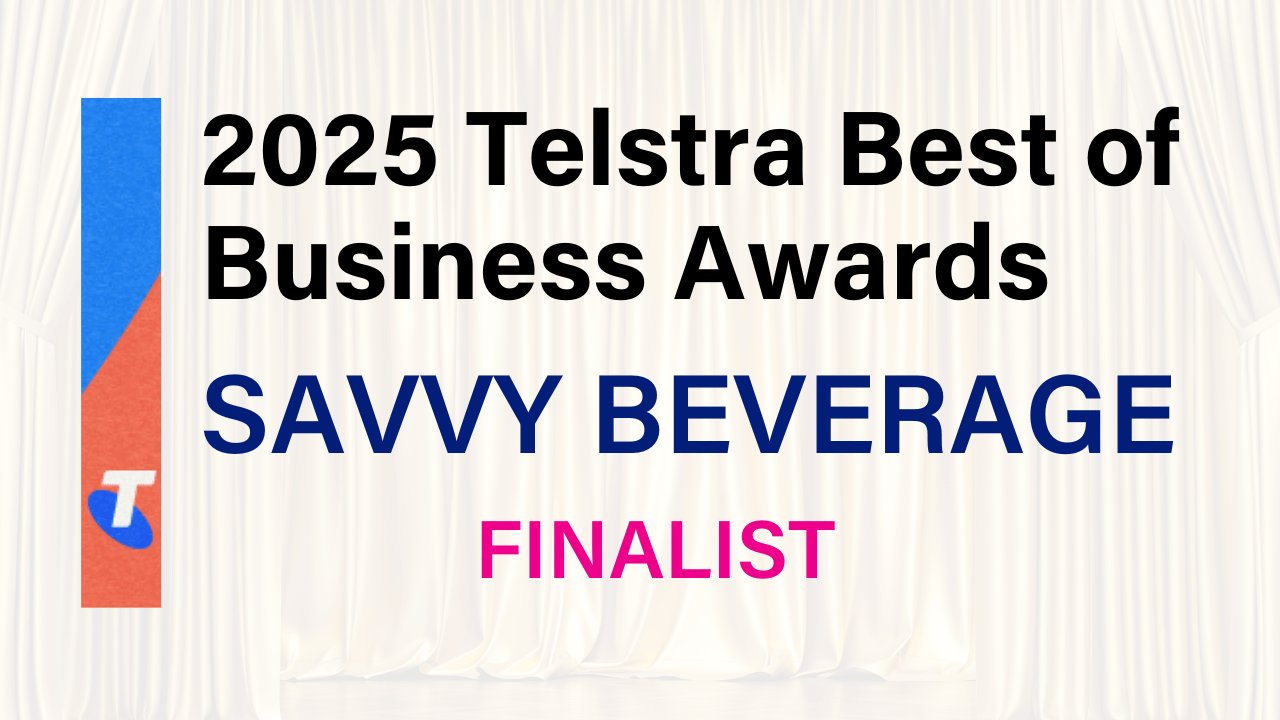
Nutrition Myths & Supplement Industry Secrets Exposed: What You Really Need to Know
Walk into any health food store, scroll through your social media feed, or flick through a glossy lifestyle magazine and you’ll be bombarded with advice about what you should or shouldn’t eat, what miracle supplement you “need,” and which trendy diet is supposedly the key to perfect health. The problem? Much of it is marketing fluff rather than science, designed to get you spending money rather than improving your wellbeing.
Even trained health professionals—doctors, nutritionists, and dietitians—sometimes fall behind the latest research, which means outdated or misleading claims often spread unchecked. And unfortunately, many companies in the supplement and nutrition industry take advantage of this confusion.
This blog takes a deep dive into the dirty secrets of the nutrition industry as well as some of the most persistent nutrition myths that refuse to die. By the end, you’ll have the tools to separate fact from fiction, and you’ll know how to make smarter choices about the food you eat and the supplements you take.
The Dirty Secrets of the Supplement Industry

The Problem With “Label Claiming”
Think of it like taking one paracetamol tablet, cutting it into twenty pieces, and then swallowing just one sliver when you’ve got a splitting headache. You wouldn’t expect any relief. Yet this is exactly what happens when supplements underdose key ingredients.
Why do companies do this? Two reasons stand out:
1. Ignorance: They simply don’t understand how much of the ingredient is required for it to work.
2. Manipulation: They know the buzzword will sell but cutting the dose keeps their costs low, even though the product won’t deliver results.
In Australia, ingredients have to be listed by weight. That means the first few items on the list are the most abundant. If you see functional ingredients like “L-theanine” or “ashwagandha” sitting right at the end of the panel, you can almost guarantee there’s not enough to make a difference.
Proprietary Blends: What Are They Hiding?
Another red flag to watch for is the phrase “proprietary blend.” While this sounds impressive, it’s often just a smokescreen. Companies use it to avoid disclosing the exact amounts of each ingredient. That way, they can sprinkle in tiny, ineffective doses of the expensive stuff while bulking the product out with cheap fillers.
If a company refuses to be transparent about its formulation, you should ask: what are they hiding?
The Buzzword Trap
Every few years, a new superfood or adaptogen gets its moment in the spotlight. Remember the kale craze? Or when coconut oil was hailed as a cure-all? While many of these foods and herbs do have real benefits, marketing departments latch onto them and exaggerate the science.
For example:
-
Turmeric does have anti-inflammatory compounds, but they need to be consumed in sufficient amounts and often alongside black pepper for absorption.
-
Ashwagandha can help with stress, but only at clinically researched doses (often around 300–600 mg of root extract).
-
Green tea extract contains beneficial catechins, but again, you need the right amount.
Buying a product that just “mentions” these ingredients without listing meaningful amounts is like paying for a car with no engine.
The Cost of Confusion
The saddest part of all this is that consumers—people genuinely trying to improve their health—end up frustrated and disillusioned. They spend hard-earned money on products that don’t work, blame themselves when they don’t see results, and sometimes give up on supplements altogether.
But the truth is: the problem isn’t you, it’s the industry’s smoke-and-mirrors tactics.
The Biggest Nutrition Myths Still Hanging Around

Even outside the supplement aisle, myths about nutrition circulate endlessly. Let’s break down some of the most persistent ones.
Myth 1: Less Calories Always Equals Weight Loss
Yes, creating a calorie deficit is key for weight loss, but the idea that it’s just about “calories in vs. calories out” oversimplifies a complex system.
Why it’s not the whole story:
-
Hormones matter. Conditions like hypothyroidism or polycystic ovarian syndrome can slow weight loss.
-
Metabolic adaptation occurs. When you cut calories too hard, your body fights back by conserving energy.
-
Quality trumps quantity. Eating 1500 calories of chips and soda is not the same as eating 1500 calories of vegetables, lean proteins, and healthy fats.
Calorie counting can be a tool, but it should never replace common sense about food quality and lifestyle balance.
Myth 2: High-Fat Foods Are Bad
For decades, fat was demonised as the enemy of good health. But science now shows dietary fat is essential for hormone production, brain function, and nutrient absorption.[1]
In fact, very-low-fat diets are linked to increased insulin resistance and higher triglycerides—risk factors for heart disease. On the flip side, moderate to high-fat diets (when the fats come from healthy sources like avocados, olive oil, nuts, and fatty fish) can support weight loss and heart health.
The key isn’t avoiding fat but choosing the right kinds of fat.
Myth 3: Breakfast Is Essential
For years, skipping breakfast was labelled a cardinal sin. “It’s the most important meal of the day,” we were told. But research shows this isn’t true for everyone.[2]
Intermittent fasting, which often involves delaying or skipping breakfast, can improve blood sugar control and reduce inflammation. On the other hand, eating a hearty breakfast may help some people feel energised and less prone to overeating later.
Bottom line: eat breakfast if you enjoy it and it suits your routine. If not, you’re not automatically sabotaging your health.
Myth 4: Small, Frequent Meals Speed Up Metabolism
Another persistent belief is that eating every two to three hours “stokes the metabolic fire.” In reality, meal frequency doesn’t matter much if you’re meeting your daily nutritional needs.
For healthy individuals, whether you eat three larger meals or six smaller ones makes little difference. What matters is the overall quality and balance of your diet.
That said, some groups—like pregnant women, people with diabetes, or those with certain digestive conditions—may genuinely benefit from smaller, more frequent meals.
Myth 5: Non-Nutritive Sweeteners Are a Free Pass
Artificial sweeteners like aspartame, sucralose, and saccharin are often marketed as healthier alternatives to sugar. But the research isn’t conclusive. Some studies suggest they may disrupt gut bacteria, increase cravings, and even raise the risk of metabolic disorders.[3]
The takeaway: if you use sweeteners, do so in moderation. Natural options like monk fruit or stevia may be better choices, but even then, keep them balanced within a whole-food diet.
Myth 6: Macronutrient Ratios Are Everything
Keto, low-carb, high-protein, low-fat—it sometimes seems like everyone is fighting over the “perfect” macronutrient ratio. While macros matter, obsessing over them can distract from what really counts: food quality.
A diet based on whole foods, rich in fibre, vitamins, and minerals, will always outperform a processed diet, even if the macros look “ideal” on paper.
Myth 7: White Potatoes Are Bad For You
Poor potatoes—they’ve been unfairly maligned for years. While French fries aren’t doing you any favours, whole potatoes are nutrient-dense, high in fibre, and packed with potassium and vitamin C.[4]
They’re also more filling than many other carb sources, which can actually help with weight control. The problem isn’t the potato itself but how it’s cooked and how much of it you eat.
How to Outsmart the Industry and Eat Smarter

1. Read Labels Like a Pro
Don’t just glance at the front of the package. Flip it over and check:
-
Are the dosages of active ingredients listed?
-
Are there unnecessary fillers?
-
Do the “hero” ingredients appear near the top or bottom of the list?
2. Look for Transparency
Trustworthy companies publish detailed information about their ingredients, sourcing, and dosages. If they hide behind vague claims or proprietary blends, proceed with caution.
At Savvy, transparency goes beyond just our ingredient labels. It is also at the core of how we do business. That commitment was recently recognised when Savvy made the finals of the Telstra Best Business Awards 2025, a reflection of our dedication to honesty, quality, and innovation.[5]
3. Focus on Whole Foods First
Supplements can be useful, but they should supplement an already balanced diet. Real nutrition still comes from vegetables, fruits, whole grains, lean proteins, nuts, and healthy fats.
4. Avoid Extremes
Whether it’s cutting out entire food groups, demonising single nutrients, or hopping on the latest fad diet, extremes rarely deliver long-term health. Moderation and balance are timeless strategies that actually work.
For those who want something more effective than traditional “diet snacks,” the Savvy Energy Nootropic Bar delivers nutrient-dense fuel, mood support, and focus in every bite.[6]
5. Educate Yourself
Nutrition science is constantly evolving. Following credible sources—scientific journals, government health websites, and respected nutrition experts—will help you cut through the noise.
Frequently Asked Questions

Q: Are all supplements a waste of money?
Not at all. Some supplements, like vitamin D for those deficient, omega-3s for those who don’t eat fatty fish, or magnesium for stress support, can be very beneficial. The key is making sure you’re buying from transparent brands with clinically effective doses.
Q: How do I know if a nutrition myth is outdated?
Check the date of the article or study you’re reading. Nutrition science evolves quickly, and what was thought to be true in the 1990s may not hold up today.
Q: Can I trust influencers for nutrition advice?
Be cautious. Some influencers are knowledgeable and responsible, but many are paid to promote products without understanding the science. Always fact-check their claims.
Final Thoughts
The world of nutrition is noisy, confusing, and often manipulative. Between the supplement companies underdosing their formulas, influencers pushing the latest fad, and old myths that refuse to die, it’s no wonder so many people feel lost.
But now you know better. By learning how to read labels, question marketing claims, and focus on nutrient-dense whole foods, you can sidestep the industry’s tricks and build a healthier, more sustainable lifestyle.
Remember: nutrition doesn’t have to be complicated. Keep it simple, keep it balanced, and don’t let myths—or marketing—dictate your health.
REFERENCES
[1] Dietary fat: From foe to friend?
[2] Is breakfast the most important meal of the day?
[3] Metabolic effects of non-nutritive sweeteners
[4] Maillard reaction products and potatoes: have the benefits been clearly assessed?







